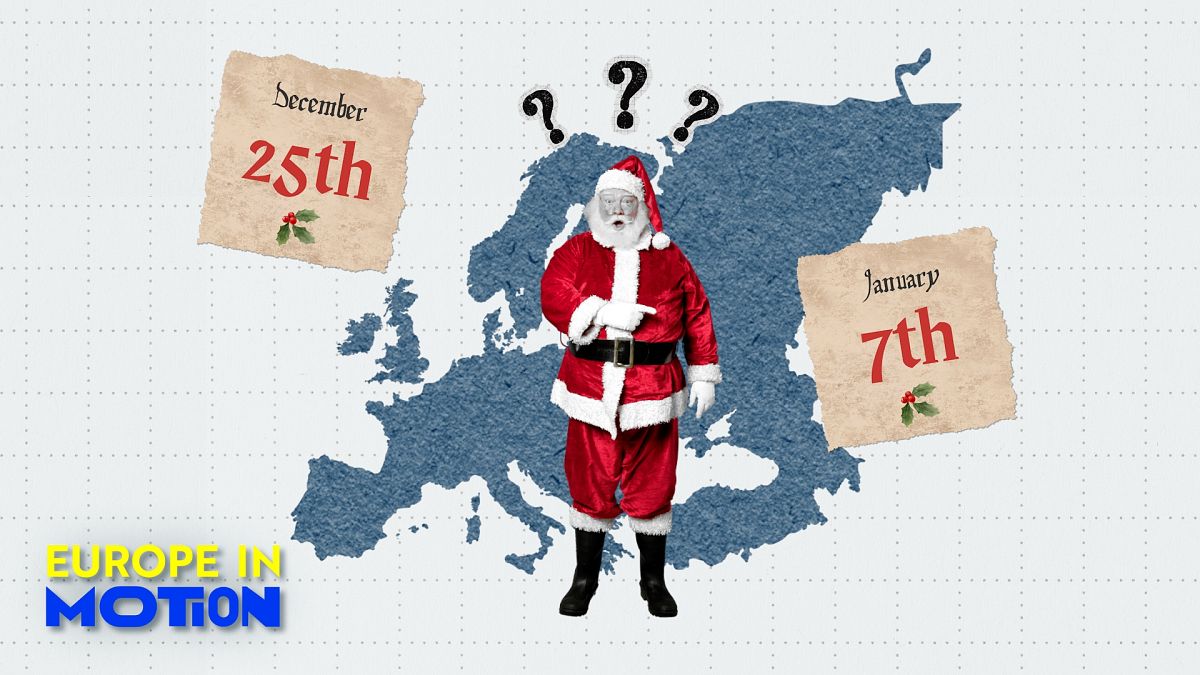Some religious and political ideologies opposed Christmas in European history, and festive traditions have proved divisive across the continent at times.
Few things encapsulate Europe’s motto United in Diversity as much as Christmas traditions.
From the Caucasus to the Atlantic coast, the way in which the continent celebrates the festive season and attributes importance to different days is extraordinarily varied and continues to change to this day.
So, which nations banned Christmas celebrations in history?
In 1640, the Scottish parliament passed a bill that outlawed “Yule vacations,” the festive period between 21 December and 1 January.
The move was part of the nation’s fight against Catholicism after Scotland became Protestant. Four centuries later, Christmas didn’t become a public holiday until 1958.
During Oliver Cromwell’s Puritan rule, neighbouring England passed a similar ban in 1647, which also affected Easter, in an effort to purge the nation of Catholic practices.
However, the ban was largely unpopular and ignored by most of the population. It was lifted in 1660, as soon as the monarchy was restored following Cromwell’s death.
Over a century later, in 1793, France banned all religious holidays to “de-Christianise” the country amid the Revolution’s push for atheistic practices, like the Cult of Reason.
Churches had to remain closed on 24 and 25 December, but, again, this didn’t stop most French from celebrating anyway and even re-building nativity scenes in their own homes. Napoleon ended anti-Church fanatism in 1801 by signing the Concordat with the Holy See.
Atheistic doctrines drove the Soviet Union to abolish all religious festivities in 1929.
Why do Europeans celebrate Christmas on different days?
The reason is that the Catholic Church and part of the Orthodox Church operate on different calendars.
In 1582, Pope Gregory XIII tweaked the old Roman calendar, also known as the Julian calendar, because it slightly overestimated the length of a year.
The new calendar issued by the pontiff, the Gregorian calendar, is now 13 days ahead of the ancient Roman system.
Some Orthodox Christians kept using the ancient calendar. This means that their 25 December now falls on 7 January of the following year in Western Christian countries.
However, some Orthodox communities, like those in Romania, Albania, Greece, Bulgaria and Cyprus, have adjusted to the Gregorian calendar and now celebrate Christmas on 25 December.
Other Orthodox churches, for example, in Serbia, Moldova, Russia, Belarus or Georgia, still celebrate Christmas on 7 January.
Ukraine was doing the same, but in 2023, after Russia’s full-scale invasion, its parliament voted to move Christmas Day to 25 December, opting to respect the Gregorian calendar from now on.
Where is Christmas Eve more important than Christmas Day?
Across much of northern Europe, for example, in Germany, Finland, Sweden, Norway and Denmark, Christmas Eve has a higher symbolic value than the actual Christmas Day, also marking the occasion when presents are exchanged.
The UK is a whole different story. Christmas Day is generally considered more important than Christmas Eve.
Scotland is an exception within the exception. Due to ancient Celtic and Norse traditions, New Year’s Eve (“Hogmanay”) has historically been much more important than Christmas.
Down south, in France, Portugal, Italy, and Spain, Christmas Eve and Christmas Day are seen as equally important.
However, while Christmas Eve is more intimate and reserved for the closest loved ones, Christmas Day feasts are generally longer and extended to more people.
Read the full article here


